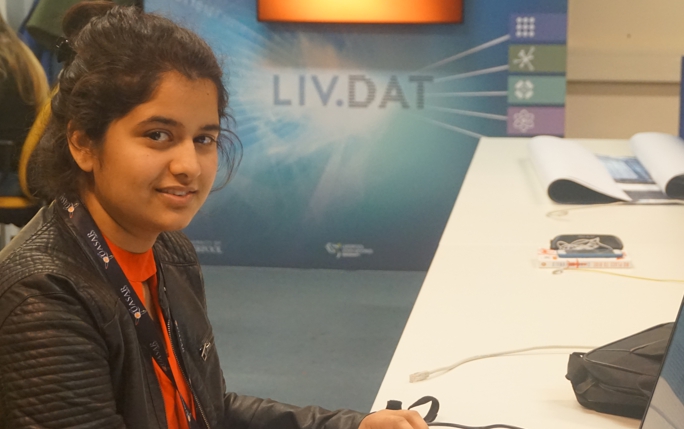CDT Student Interviews - Spotlight on Monika Yadav

Why are you interested in Physics?
"I found it both simple and challenging. Just with some equations and theories it comprehend the whole universe. "
How did you end up in Liverpool?
"I got interested in Plasma during my Masters and did my Master's thesis in same field. Since then I always wanted to explore more in the field of plasma, radiation and its applications. My PhD project is aimed at a very significant application that would contribute towards development of novel accelerators. QUASAR group (UoL)is the perfect platform where i can give a chance to my thoughts and ideas."
Which contribution to your field do you consider to be the most significant?
"In field of accelerators, of course LHC is a marvellous contribution both scientifically and in term of collaborative efforts, but one cannot call a number of other scientific contributions less significant as one discovery or contribution paves the path for others. For example, I am equally awed by Maxwell's theoretical contributions as by the development of numerical science."
What do you hope to contribute to your field?
"Well, I first want to contribute in terms of my PhD. It would be great if the work I do in my PhD thesis could be put to practical use, which would require further efforts. I hope that I will be able to contribute to the development of better accelerators that could not only help probe fundamental physics but in the process of development would enrich our technological capacity."
Where do you hope to end up after your PhD?
"I hope to gain a lot of skills during my PhD, both in computational methods and physics. After my PhD, I would like to be in a job where I use them to face new challenges, so a postdoctoral follow up in the same field is very likely. I have not ruled out the option of a job in industry, if it has scope for research and exploration."
Why do you think Big Data is important?
"Science has evolved from qualitative analysis to rigorous mathematical theories constrained and motivated by observations and is becoming more and more data driven. So we need to continuously evolve in our data handling and analysis techniques and currently computers equipped with proper algorithms appear to be our best option. Also, the multitude of challenges that Big Data techniques deal with is simply incredible, ranging from Cosmology to stock markets, and Google to particle physics."